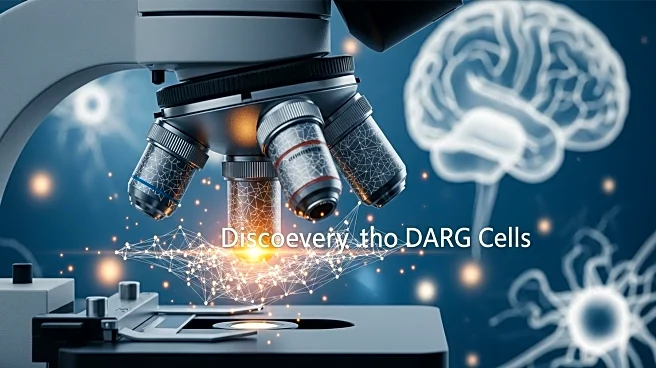What is the story about?
What's Happening?
Researchers have identified a unique type of brain cell, disease-associated radial glial-like (DARG) cells, which may play a crucial role in progressive multiple sclerosis (PMS). These cells contribute to persistent inflammation and neurodegeneration in PMS. The study used 'disease in a dish' technology to reprogram skin cells from PMS patients into induced neural stem cells, revealing the presence of DARGs.
Why It's Important?
The identification of DARG cells provides a new understanding of the mechanisms driving PMS, potentially leading to the development of targeted therapies. This discovery could pave the way for more effective treatments, offering hope to individuals suffering from this debilitating condition.
What's Next?
Researchers aim to explore the molecular mechanisms behind DARG cells and test potential treatments that could correct or eliminate their dysfunction. Success in this area could lead to the first disease-modifying therapies for PMS, significantly impacting patient care.
Beyond the Headlines
The study highlights the potential of advanced cellular reprogramming techniques in uncovering disease mechanisms and developing novel therapeutic strategies. Ethical considerations regarding the use of such technologies in research and treatment should be addressed.
















